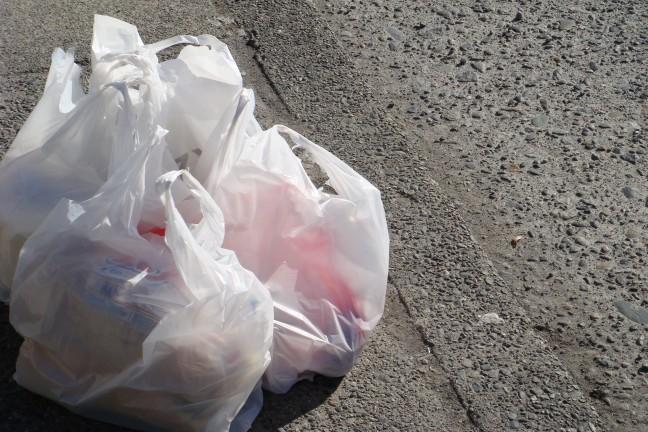The question of paper or plastic at the grocery store may seem trivial, while other recent trends would suggest that paper is environmentally the better option of the two.
Turns out the best answer may be neither.
Many misconceptions exist about the environmental impacts of plastic products, but conventional wisdom places focus on plastics when other contributors, like paper, glass and metal products also have their faults to the environment.
UN Environment Programme director discusses impact of plastic pollution
According to National Geographic, plastic bags have the advantage over other types of bags in their production sustainability. They are mostly made from high density polyethylene. While their production does use petroleum, the production of plastic bags emits less carbon and creates less harmful waste. But plastic bags, while recyclable, typically end up as litter and can harm marine life and the food chain.
While the harmful effects of plastic bags are known, this can lead people to believe paper is the safer choice — but the environmental impacts of paper bags are also well known. Paper bags are biodegradable and easier to recycle than plastic bags, but their production requires about four times the energy required to produce a plastic bag, according to National Geographic.
“I can’t tell you how many hours I’ve spent talking about plastic straws,” Campus Resource Coordinator at the Office of Sustainability Travis Blomberg said in an email to the Badger Herald. “These topics do matter, but the time spent on debating these activities are disproportionate to their actual impact. Instead, I hope that these conversations are used productively to increase sustainability literacy and help change our collective actions.”
Above these two options, another choice reigns supreme in environmental impact — reusable bags. The use of reusable bags keeps litter off the streets and out of our ecosystems, according to National Geographic.
Considering environmental impacts, the question of paper or plastic can be best answered by reusable alternatives, but many other environmental issues pose a greater threat than shopping bags.
While comparing environmental impacts of the bags can be informative and educational, Blomberg cautioned against over focusing on the paper versus plastic debate.
“Topics like these can often distract us from focusing on bigger environmental impacts. The quote ‘a penny wise but a pound foolish’ comes to my mind when topics like these are discussed,” Blomberg said. “It’s not about what bags we pick, rather it’s what’s inside the bags that has the much larger negative impact on the environment.”













